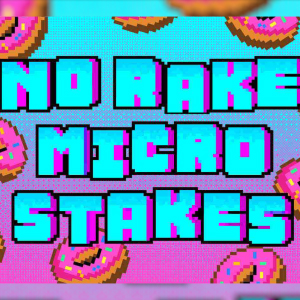How Can Physical Fitness Help Your Poker Game?
9 years ago
21 Jul
Poker is a mental sport, and because of that, we tend to completely ignore physical activity in pursuit of mental improvement. It doesn't matter "how much ya bench?" or how good your cardio is when you're trying to figure out villain's bluffing frequency on the river in a certain spot, does it? At some point in our modern history, there was a clear disconnect between the mental and physical sides of our lives. Your garden variety scholar is most often presented as a meek and weak guy or gal behind spectacles and it's commonly understood that you won't find a partner for stimulating conversation in a bodybuilding show.
It wasn't always like this. Ancient Greece offered a slightly different view of the world in which "a sound mind is in a sound body". Gymnasium was a place where people both discussed "the answer to life, the universe, and everything" and put each other in a chokehold honing their wrestling skills (it was basically the equivalent of an Irish pub after 11pm except for the fact that everyone was naked and that's not the case in most of the pubs). People had the intuitive understanding of the fact that mental performance and physical performance are intrinsically connected and I think it's a high time for society to re-learn that.

Mental and Physical Health
Your average poker player's lifestyle isn't exactly the healthiest way of living. They say that "sitting is the new smoking" and spending hours and hours on end behind the computer screen isn't exactly what our mobile joints were designed to do. Poker players are a risk group for developing many different diseases and disorders associated with prolonged sitting, lack of physical activity, and - very often - isolation. This is, of course, a generalization and you can find the outliers like Jason Koon who'd probably win the WSOP Main Event every year if players were required to do 10 burpees after each hand, but most of the poker playing population is at a real risk of developing some health problems if they take their passion to the extreme. Fortunately, it's relatively easy to prevent that by introducing some physical activity into our lives.
Depression affects 10% of society. Poker players spending a lot of time living unbalanced lives behind the computer screen are at a high risk of developing the mental imbalance that's causing the condition. Studies show that just 30-60min of exercise every day (or around 4-6h per week) can reduce the symptoms of depression and anxiety in 50% of patients (similar success rate can be observed in elderly people struggling with dementia and Alzheimer's!). And it's not like you have to run marathons. 30-60min of brisk walking every day is enough to reap most of the health benefits and while more is better, you start hitting some diminishing returns if you spend more than 7 hours a week exercising.
Let's say your mental health and performance are on point and you don't really need help in that department. Can physical fitness still be beneficial for you as a poker player? In an Aerobic Center Longitudinal Study conducted by Steven Blair,low fitness was the strongest predictor of death among other popular risk factors like high blood pressure, smoking, diabetes, and obesity. While this might sound a bit morbid, you can't really make a lot of money when you're dead, so it might be worth it to get up and walk around the block before your next 12 hour grind sesh.

Exercise and Memory
The disconnect between body and mind that I mentioned before is so deeply ingrained in our collective consciousness that the effects of exercise on our mental performance is surprisingly poorly researched. Fortunately, there are some solid studies out there showing that physical fitness can, in fact, boost our memory and cognitive skills.
One of the recent ones conducted by Radboud University studied the connection between exercise (35 minutes of interval training on a treadmill) performed a few hours after mental activities, on our memory showing that it might, in fact, exist (group performing the exercise scored noticeably better on a test than the group who didn't). Turns out that swapping your evening poker study session for a gym session might yield better results than burying yourself in coaching videos, databases, and spreadsheets.

Which Type of Exercise Should You Choose?
If you're sold on the idea that physical fitness can actually contribute to your poker game but you're not very active right now, you're probably wondering what type of exercise or training program should you choose? The answer to this question is really important and surprisingly simple - you should choose the exercise that you'll stick with. Adherence is the most important training variable because even the best, cutting edge, training routine means very little on paper (just like even the best poker strategy amounts to nothing if you're not actually hitting the tables regularly). Besides, you don't really need a cutting edge training program, the minimum that can offer you most of the health benefits that we talked about above is very easy to meet.
All you really need is 30 minutes of brisk walking every day. Put some headphones on with a poker podcast or audiobook and you can blend those 30-60 minutes of exercise seamlessly into your daily routine.
If you want to get a bit more serious about training, the best thing you can probably do is to start lifting some heavy weights. Studies show that people on the right side of the strength bell curve have much lower chance of dying from virtually any cause (from a stabbing or a gunshot wound, to cancer). Stronglifts 5x5 and Starting Strength are virtually the most popular strength training programs around, and using one of them is a good place to start even if you end up switching to something else that might suit your needs better. Those programs will put some muscle on every beginner but they aren't optimized for that purpose but at least they will help you build a solid foundation.
Remember that adherence is king, so if lifting weights in the gym sounds boring to you there are many alternatives. Maybe you enjoy watching MMA? Consider signing up for a Muay-Thai and/or Brazilian Jiu-Jitsu class. Do you enjoy running? Then get yourself some running shoes and go nuts. Try some yoga, ride a bike, play some football or basketball. Some of those activities will be better for your health than others, but they are all good enough and will definitely help your poker game.
Like Hippocrates once said, "walking is man's best medicine". If you want to make sure that both your body and mind stay healthy despite the sacrifices poker lifestyle causes us to make, and if you want to make sure that you're doing everything you can to play your best at the poker table, introduce some physical exercise into your life. You'd be hard-pressed to find something better that offers higher ROI both when it comes to poker profit and the quality of life.






Comments
You need to be logged in to post a new comment